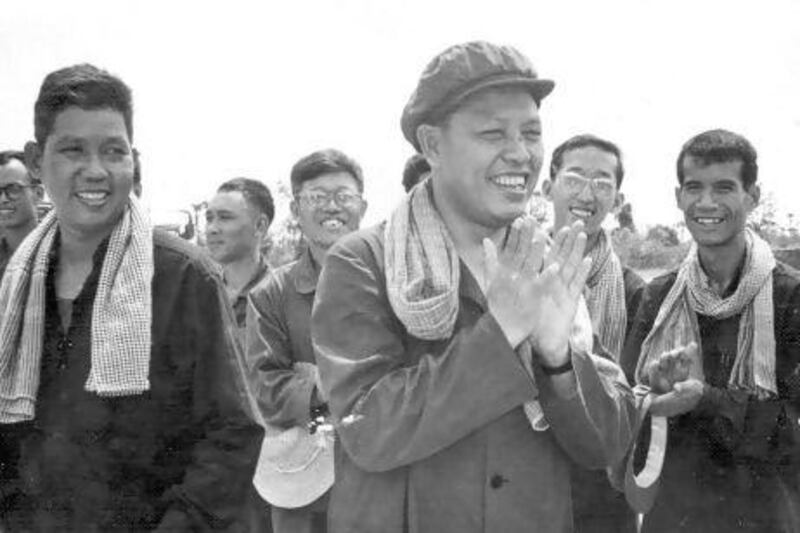PHNOM PENH // Ieng Sary, who co-founded Cambodia's brutal Khmer Rouge movement in 1970s, died yesterday at the age of 87.
He served as its public face of the group abroad and, decades later, became one of its few leaders to face justice for the deaths of more than a million people.
His death came while he was on trial, with two other former Khmer Rouge leaders, at a joint Cambodian-international tribunal. His health had been declining.
He founded the Khmer Rouge with its leader Pol Pot, who was his brother-in-law.
The communist regime, which ruled Cambodia between 1975 and 1979, claimed it was building a pure socialist society by evicting people from cities to work in labour camps in the countryside. Its radical policies led to the deaths of an estimated 1.7 million people.
In 1996, years after the overthrown Khmer Rouge retreated to the jungle, Ieng Sary became the first member of its inner circle to defect.
The move secured him a limited amnesty, temporary credibility as a peacemaker and years of comfortable living in Cambodia. That ended when the UN-backed tribunal built its case against him.
The Khmer Rouge came to power through a civil war and Ieng Sary, its foreign minister, helped to persuade hundreds of Cambodian intellectuals to return home from overseas. The returnees were arrested and put in "re-education camps". Most were executed.
Known by his revolutionary alias, "Comrade Van", Ieng Sary was a recipient of many internal Khmer Rouge documents detailing the torture and mass execution of suspected internal enemies.
"We are continuing to wipe out remaining internal enemies gradually, no matter if they are opposed to our revolution overtly or covertly," read a cable sent to him in 1978.
"It's clear that he was one of the leaders that was a recipient of information all the way down to the village level," said Youk Chhang, th director of the Documentation Center of Cambodia, an independent group that has gathered evidence of crimes for the tribunal.
Ieng Sary was arrested in 2007, and tried with Nuon Chea, the Khmer Rouge's chief ideologist, and Khieu Samphan, a former head of state. Their trial - on charges including crimes against humanity, war crimes and genocide - began in late 2011.
Pol Pot died in 1998 in Cambodia's jungles while a prisoner of his own comrades.
Ieng Sary declined to participate in his trial, demanding that the tribunal consider the pardon he received from Cambodia's king when he defected in 1996.
He denied any hand in the atrocities saying Pol Pot "was the sole and supreme architect of the party's line, strategy and tactics".
Ieng Sary was born Kim Trang on October 24, 1925, in southern Vietnam. In the early 1950s, he was among many Cambodian students who received government scholarships to study in France.
After returning to Cambodia in 1957, he taught history at an elite school in the capital, Phnom Penh, while engaging in clandestine communist activities. He, his wife Ieng Thirith, Pol Pot and Pol Pot's wife, Khieu Ponnary, formed the core of the Khmer Rouge movement. Pol Pot's wife, Ieng Thirith's sister, died in 2003.





